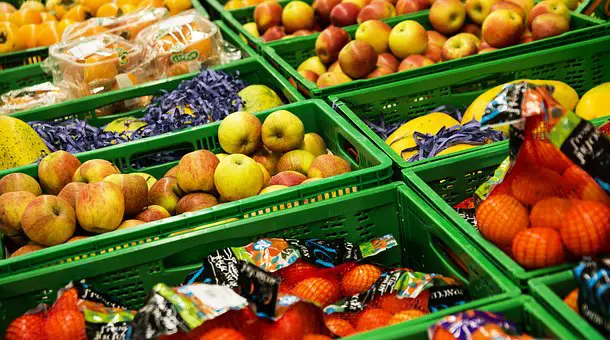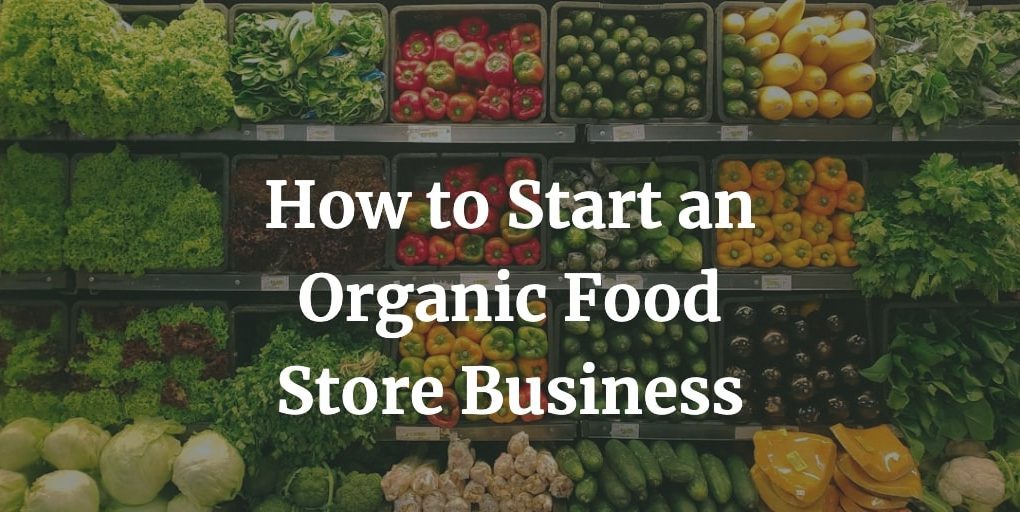In recent years, there has been a growing awareness and demand for organic products in India as people become more health-conscious and environmentally aware. This has created a lucrative opportunity for entrepreneurs interested in starting an organic store business. In this comprehensive guide, we will explore the step-by-step process of establishing and running a successful organic food store business.
Table of Contents
What is an Organic Food Store?

An organic food store is a retail establishment that specializes in selling organic food products. Organic food refers to agricultural products that are grown and processed without the use of synthetic pesticides, fertilizers, genetically modified organisms (GMOs), antibiotics, or growth hormones. These products are cultivated using organic farming methods that prioritize soil health, biodiversity, and ecological balance.
Organic food stores typically offer a wide range of organic products, including fresh fruits and vegetables, grains, pulses, dairy products, meat, poultry, eggs, packaged foods, snacks, beverages, and personal care items. These stores may also sell organic gardening supplies, supplements, and eco-friendly household products.
8 Steps to Start an Organic Food Store Business
1. Market Research
Before diving into the organic store business, it is critical to conduct thorough market research. Identify the demand for organic products in your target area, understand consumer preferences, and assess the competition. This research will help you identify the niche you want to target and develop a unique selling proposition (USP) for your store
2. Develop a Business Plan
A well-thought-out business plan is crucial for the success of any business. Outline your business goals, target market, product offerings, pricing strategy, marketing plan, and financial projections in your business plan. This document will serve as a roadmap for your organic store business and help you secure funding if needed.
3. Obtain Necessary Licenses and Permits
Before opening your organic store, ensure that you obtain all the necessary licenses and permits required to operate a retail business in India. This may include a trade license, GST registration, FSSAI license for food products, and any other permits mandated by local authorities.
4. Choose a Location
The location of your organic store plays a significant role in its success. Look for a location with high foot traffic, preferably in a residential area or a commercial district. Ensure that the location is easily accessible to your target customers and has ample parking space if needed.
5. Source Organic Products
One of the most critical aspects of an organic store business is sourcing high-quality organic products. Establish relationships with organic farmers, suppliers, and distributors to procure a wide range of organic products, including fresh produce, grains, pulses, dairy products, packaged foods, and personal care items. Ensure that all products meet the organic certification standards set by regulatory authorities.
Read: How To Start An Organic Farming Business
6. Set Up Your Store
Design an inviting and aesthetically pleasing store layout that highlights your organic products. Invest in eco-friendly shelving, displays, and signage that reflect your brand’s commitment to sustainability. Create dedicated sections for different product categories and ensure proper labelling and display of organic certifications. Buy a Point of Sale (POS) software for your organic food shop.
7. Develop a Marketing Strategy
To attract customers to your organic store, you’ll need to develop a robust marketing strategy. Utilize both online and offline marketing channels to reach your target audience. This may include setting up a website and social media profiles, offering discounts and promotions, participating in local events and farmers’ markets, and collaborating with other businesses in the health and wellness industry.
8. Provide Excellent Customer Service
Exceptional customer service is key to building a loyal customer base for your organic store. Train your staff to be knowledgeable about organic products, provide personalized recommendations, and offer exceptional service at all times. Encourage feedback from customers and use it to continuously improve your store’s offerings and customer experience.
Frequently Asked Questions
Do I need any special certification to sell organic products in India?
Yes, it is advisable to obtain certification from recognized bodies such as the Agricultural and Processed Food Products Export Development Authority (APEDA) or the National Programme for Organic Production (NPOP). This certification ensures that your products meet the organic standards set by the government.
How can I ensure the authenticity of organic products sourced from suppliers?
When sourcing organic products from suppliers, it is essential to request proper documentation, including organic certification from accredited certifying agencies. Additionally, you can visit the supplier’s farms or facilities to verify their organic farming practices firsthand.
What are the key factors to consider when selecting a location for my organic food store?
When choosing a location for your organic store, consider factors such as foot traffic, visibility, proximity to your target market, competition, and accessibility. Ideally, select a location in a residential area or a commercial hub with a high concentration of health-conscious consumers.
How can I attract customers to my organic food store?
To attract customers to your organic store, focus on creating a unique selling proposition (USP) that sets you apart from competitors. This could include offering a wide range of organic products, providing personalized customer service, hosting educational workshops or events, and leveraging digital marketing channels to reach your target audience.
What are some effective marketing strategies for promoting my organic food store?
Some effective marketing strategies for promoting your organic store include:
- Creating a visually appealing and user-friendly website with information about your products and services.
- Leveraging social media platforms to engage with your audience, share educational content, and showcase your products.
- Collaborating with local influencers or health and wellness bloggers to endorse your brand and products.
- Participating in local community events, farmers’ markets, or health expos to increase brand visibility and attract new customers.
How can I ensure the quality and freshness of organic products in my store?
To ensure the quality and freshness of organic products in your store, establish strong relationships with trusted suppliers and farmers who prioritize sustainable farming practices. Implement proper inventory management techniques to rotate stock regularly and minimize wastage. Additionally, conduct regular quality checks and inspections to maintain product integrity.
What are some common challenges faced by organic food store owners in India?
Some common challenges faced by organic store owners in India include sourcing high-quality organic products consistently, educating consumers about the benefits of organic products, managing inventory and logistics effectively, and competing with conventional grocery stores on pricing.
How can I stay updated with the latest trends and developments in the organic industry?
To stay updated with the latest trends and developments in the organic industry, subscribe to industry newsletters, join relevant trade associations or networks, attend organic trade fairs and exhibitions, and engage with online forums and communities dedicated to organic farming and sustainable living.
Are there any government subsidies or support programs available for organic food store owners in India?
Yes, the Government of India offers various subsidies and support programs to promote organic farming and sustainable agriculture practices. These include financial assistance for organic certification, infrastructure development, and market promotion initiatives. Contact your local agriculture department or relevant government agencies to learn more about available schemes and eligibility criteria.
How can I expand my organic store business beyond physical retail to reach a wider audience?
To expand your organic store business beyond physical retail, consider launching an e-commerce website or partnering with online marketplaces to sell your products online. You can also explore wholesale distribution opportunities by supplying organic products to restaurants, cafes, hotels, and other food service establishments. Additionally, consider offering home delivery or subscription services to cater to the growing demand for convenience among consumers.

NextWhatBusiness Research Desk represents the editorial research function at NextWhatBusiness.
Content published under the desk is based on independent research, operator-level observations, and analysis of small, medium, and franchise-led business models in India.
The focus is on practical decision-making — including capital requirements, operational effort, and risk factors — rather than promotional or brochure-driven information.
Some articles reflect editorial judgment based on observed patterns and may include opinionated analysis where appropriate.
Editorial oversight is provided by Rupak Chakrabarty, Editor, NextWhatBusiness.



